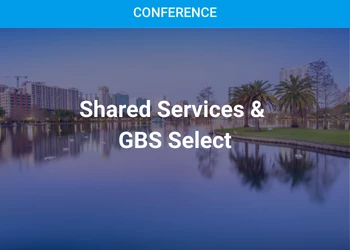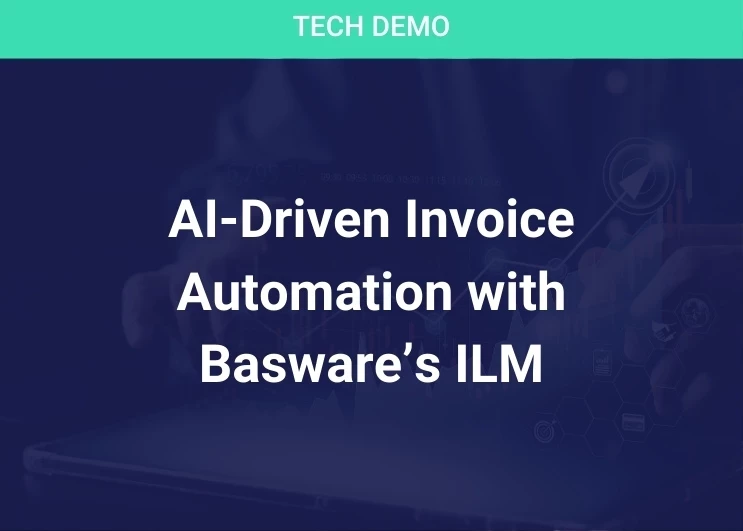AI in Workforce Management: What You Need to Know
In conversation Manisha Singh, Executive Partner for Talent Transformation at IBM
Add bookmark
Manisha Singh is a digital transformation expert with nearly 20 years of experience in strategy, business transformation, and people operations. In Manisha’s current role at IBM she is focused on using digital, data, and AI to create frictionless experiences for empowered workers. During this month’s Intelligent Automation World Series digital conference, Manisha will share strategies for using AI as a tool to manage workforce performance. Before the event, SSON Digital sat down with Manisha to discuss some of the things she will discuss at IA World Series.
What are the top challenges businesses are facing in managing workforce performance?
Most businesses, including IBM, are in the process of reinventing themselves. It’s not just one transformation; any big business is trying to double its digital revenue, create a market-leading digital ecosystem platform and bring these systems into each business function.
Knowing the context of where so many businesses are, I think there are three core challenges businesses are facing in managing their workforce.
The first one is how do we reskill/upskill the workforce? There are so many new technologies today that weren’t available five or ten years ago, and many businesses are challenged to devise ways to train a large amount of their workforce in these new technologies.
The second is something every business is trying to navigate right now, which is amidst this “great resignation” how do we attract and retain talent? I think this is one of the most timely challenges right now, and something many businesses are working hard to address.
The final challenge is how we accelerate digital transformation to benefit workforce performance. Most digital transformation projects run over budget and over time, so businesses need to find ways to make these projects more successful.
How can AI assist with providing workforce performance management?
I have spent the last 12-15 years looking at how AI would change the workforce, but now, in 2022, AI is already being used by most organizations across the employee lifecycle. The way we recruit, the way we onboard talent, and even the way we provide benefits and wellness to our employees are all being managed by AI.
So, AI is clearly playing a role in workforce performance management, but business leaders today are concerned with how we scale AI to address those three challenges I mentioned earlier.
That first challenge (how do we reskill our workforce) is always going to be a relevant issue for businesses. As a result, businesses are always going to be challenged in determining what skills are going to be required in their industry as technology advances. It would be unfavorable for businesses to assess the skills that might be required down the road without the help of AI. For example, AI can help build learning platforms that understand the speed employees learn and ensure they are still understanding new information in a timely manner.
The next challenge (how do we attract/retain workers) can also be addressed through AI. HR departments can work with AI to deliver personalized experience programs that make each employee feel valued and eventually personalization can be delivered at scale throughout the business.
The third challenge (how to accelerate digital transformation) will also rely heavily on AI in the near future. AI solutions can be implemented to provide some critical analysis of key projects and workflows, and the real-time insights AI can provide will allow businesses to take quick actions.
How can organizations ethically deploy AI in a way that ensures employees continuous trust in those technologies?
A lot of the people that work with AI understand that it is a double-edged sword. While AI can really help accelerate meaningful employee experiences, if businesses aren’t careful, it can weaken the trust employees have in their employer.
I believe there are three things businesses can do to develop trustworthy AI in their organization.
The first is to create a pledge that gets put on the business's website. This pledge, or declaration, should have pillars that clearly outline the company's data privacy policies.
The second is establishing a process for whenever a new algorithm is implemented, this process should review any use cases of the new algorithm and determine whether it is fair for employees.
The third is governance, and in many businesses that comes in the form of a data privacy officer, or an employee whose job is to protect other employees' privacy.
In addition to that, at the algorithm level, there are also things companies are doing to address the trustworthiness of AI. For example, IBM has started to create AI patch sheets for all its algorithms. These are basically food labels that show users exactly what the algorithm will do, and they should be easy to understand for any employee regardless of their technical knowledge.
What's one takeaway you want attendees of your event at IA World Series to walk away with?
This is a difficult question because everyone might have a takeaway that is pertinent to their experiences. But regardless of that, I think people should walk away knowing that AI is a powerful enabler and not something we should be afraid of. With that being said, businesses need to be cognizant that not everyone will trust AI, and we need to skill ourselves and provide our teams with the proper tools, to ensure we are making the correct choices.






















